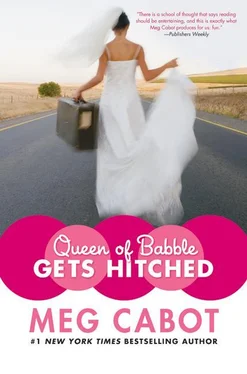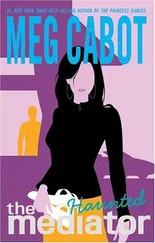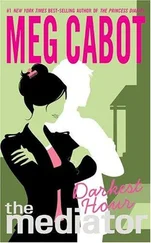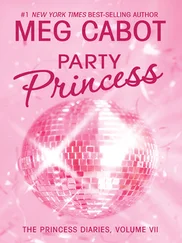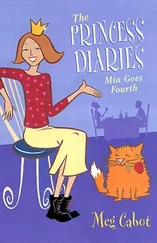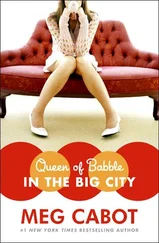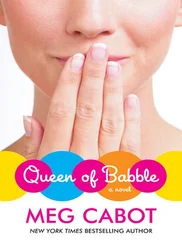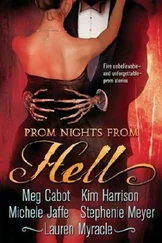“It’s a holiday,” I point out. Jeesh. Some people can be so picky.
Mom’s reception of the news that I’m getting married is much warmer than Gran’s. She screams and cries and calls for Dad and asks to speak to Luke and welcomes him to the family and wants to know when she’s going to get to meet him. Which reminds me that it is a little weird Luke hasn’t met my family yet. I’ve met all of his.
But oh well. They’ll meet soon enough, I guess. Mom wants to throw an engagement party… and the wedding, which Mom immediately offers the family backyard for, a suggestion I gently brush off, saying, “Well, we’ll see.” I’m not sure how to break it to her that Luke’s already suggested we get married at his seventeenth-century familial estate in the south of France, an offer that’s pretty hard to turn down.
Except that my family’s never been to Europe before… they’ve never been to New York before.
This might actually pose a problem.
But Luke says all the right things to them on the phone, and is as charming and gracious as if my parents were a king and queen and not a professor at the University of Michigan cyclotron and a housewife. Everything, I think, as I watch him proudly, is going to be fine. Just fine.
“This is like watching a lamb being led to slaughter. Is getting married really that important to you? It’s just a goddamned piece of paper.”
Okay, well, it’s going to be fine after a few more phone calls. And more sex.
A lot more sex.
A HISTORY of WEDDINGS
The declaration of union between two people has long been considered by sociologists to be an important step in the development of human happiness. Societally speaking, a heterosexual male who has paired off with a heterosexual female is generally thought to be calmer and less prone to violence, and a wedded female equally less troublesome. Their offspring benefit from having both a father and a mother, and—in ancient times, at least—the entire tribe benefited from the goodwill generated from a happy union. In other words: weddings were a joyous occasion that brought about less fighting and unpleasantness all around.
I would just like to point out that none of these sociologists came to my sisters’ weddings. Obviously.
Tip to Avoid a Wedding Day Disaster
Is your future mother-or sister-in-law driving you insane as you plan your special day? There’s a simple way to get her off your back. Give her something to do! Allowing his family—especially the female members—to take part in the preparations for the big day will not only make them feel special but will also lift some of the burden off your shoulders.
Just make sure you don’t ask them to do anything too important. That way when they mess it up (as they in evitably will), it won’t matter.
LIZZIE NICHOLS DESIGNS ™
Happy and thrice happy are those who enjoy an uninterrupted union, and whose love, unbroken by any sour complaints, shall not dissolve until the last day of their existence.
Horace (65 B.C.–8 B.C.), Roman lyric poet
“Hello, Chez Henri, please hold.”
“Hello, Chez Henri, please hold.”
“Hello, Chez Henri, please hold.”
“Hello, Chez Henri, how may I help you?”
“Yeah, is this Henri Bridal?” The woman on the other end of the phone has pronounced it Henry instead of the correct French pronunciation of my boss’s name, which is En-ree.
That I can forgive. What I can’t forgive is that she’s chewing gum. I can feel my toes curling. Of all the annoying personal habits a bride-to-be—or anyone, really—can have, gum-chewing is the one that aggravates me the most.
“Yes, it is,” I say, glaring at all the blinking lights on my phone. It’s a good thing I had all those months of reception work at the law offices of Pendergast, Loughlin, and Flynn. I can handle an overloaded switchboard like nobody’s business.
And the Monday morning after Jill Higgins’s New Year’s Eve wedding to wealthy socialite John MacDowell—at which Anna Wintour (yes, the Anna Wintour, longtime editor of Vogue) called my restoration of the ancestral MacDowell bridal gown “cunning”—the phones at Chez Henri are ringing off the hook.
Of all the mornings for Monsieur and Madame Henri to come in late from their home in suburban New Jersey, this would not have been the one I’d chosen. I’m just saying.
“I wanna make an appointment to see that chick,” the gum-chewer says.
“I beg your pardon?” I am taken aback. First gum-chewing, then a reference to me—and she can only be referring to me. I am the only employee at Chez Henri who can reasonably be referred to as a “chick,” Madame Henri being in her fifties—as a derogatory slang word for “young woman”?
“You know,” Gum-Chewer says. “The chick that designed that dress for Blubber.”
Blubber. The nickname the press dubbed poor Jill Higgins, because she happens to work in the seal enclosure at the Central Park Zoo. And because she’d deigned to fall in love with one of New York’s wealthiest bachelors, and she doesn’t happen to be a size two.
“I’m sorry,” I say to Gum-Chewer. “The chick to whom you are referring happens to dislike people who look down on others due to their weight.”
Gum-Chewer appears to have swallowed her gum. “But—”
“And furthermore, that chick happens to dislike being called a chick.”
“Um, excuse me.” Gum-Chewer snaps her gum. “But do you have any idea who I am? I’m—”
“No, and I don’t care to know. Good-bye,” I say, pressing the END CALL button. “Chez Henri, how may I help you?”
“Elizabeth? Is that you?” The woman on the other end of the line has a heavy French accent and sounds as if she’s speaking to me from inside a tunnel. No, it isn’t my future mother-in-law, who is from Texas. It’s Madame Henri.
“Madame, where are you?” I ask in French, the language I now routinely slip into when speaking to my employers, though I hid the fact that I could speak it—not perfectly, but well enough to understand (and be understood by) them—for months. “It’s crazy here. The phones are ringing off the hook.”
“Elizabeth, I’m so sorry. I meant to call earlier, but my cell phone doesn’t work here. I’ve been at the hospital.”
“The hospital?” The other lines continue to ring. Callers, impatient at being placed on hold, have hung up and are calling back. I turn away from the phone. “Is everything all right? I hope nothing happened to the boys—”
“No, the boys are fine. It’s Jean, actually.” Madame Henri’s voice sounds tiny. She’s a petite woman, but the one thing about her that’s never seemed small before is just that… her voice. She’s always had a commanding—even domineering—presence. But not now. “He didn’t feel well at breakfast yesterday morning. I thought it was just too much champagne from the night before. But then he said his arm hurt—”
I gasp. “Madame!”
“Yes.” Her voice sounds even smaller. “He had a heart attack. He is scheduled for emergency bypass surgery here at the hospital today. Quadruple.” Then, with a hint of her old asperity, she adds, “I told him he works too hard! I told him he needed to take more time off! Well, now he’s getting it… and look how he has to spend it! He could have taken it at our home in Provence. But no! Not him! This is what it has come to.”
“Oh, Madame.” I shake my head. “Well, I’m sure he’s in very good hands—”
“The best,” Madame Henri says simply. “But it will be weeks before he can return to work. And I as well, because who do you think will have to play nursemaid to him? His sons? Bah! They are worthless. Worse than garbage.”
Читать дальше
